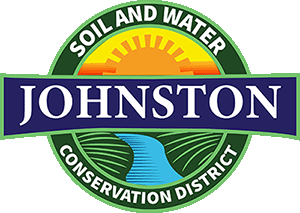
Soil and Water Conservation
Johnston County, North Carolina

Johnston County, North Carolina
Like saltwater coastal waters, freshwater wetlands offer a variety of benefits, including:
Water Quality. Some wetlands contribute to improving water quality by removing excess nutrients and many chemical contaminants. They are sometimes used in tertiary treatment of wastewater.
Flood conveyance. Wetlands can form natural floodways that allow floodwater to move downstream without causing damage.
Flood storage. Wetlands can store floodwater and release it slowly, lowering flood peaks.
Wildlife habitat. Inland wetlands can support wide varieties of wildlife.
Sanctuary for rare and endangered species. Protection of wetlands often means providing good habitats for endangered animals. An estimated 43 percent of the threatened and endangered species in the U.S. rely either directly or indirectly on wetlands for their survival.
Aesthetic value. The natural beauty of wetlands is a source of visual enjoyment.
Recreation. Wetlands provide for sites for hunting, fishing, and observing wildlife.
Education and research. The rich ecosystems of wetlands are natural locations for biological research. and observation.
Water supply. With the growth of urban areas, wetlands are becoming more valuable as sources for water supply. Some wetlands help recharge ground water supplies.
Food production. Wetlands have potential for the production of marsh vegetation and aquaculture.
Timber production. Properly managed, wetlands can provide good sources of timber.
Historical value. Some wetlands were locations for Indian settlements and provide significant historical and archeological value.
Freshwater wetland habitats include palustrine forested, or forested swamps and bogs; palustrine shrub, or shrub wetlands; palustrine emergents, or inland marshes and wet meadows; palustrine unconsolidated bottom, or open water ponds; palustrine aquatic beds, or floating aquatic or submerged vegetation; and lacustrine, or lake and river habitats.